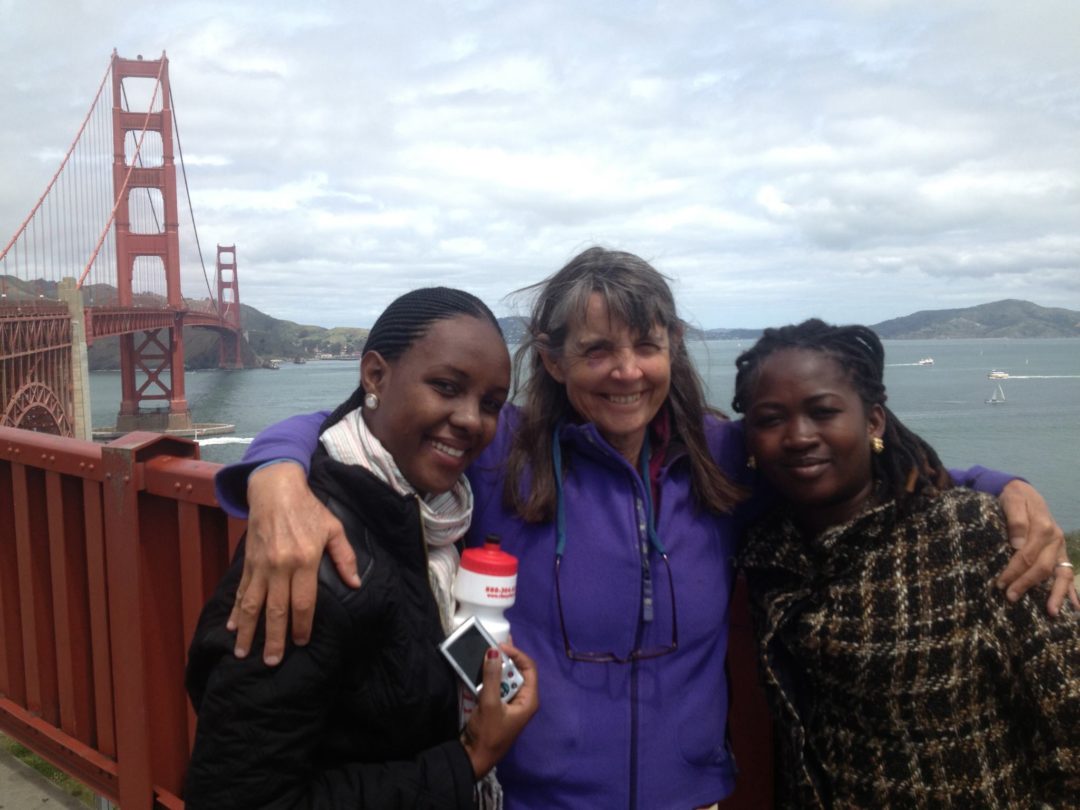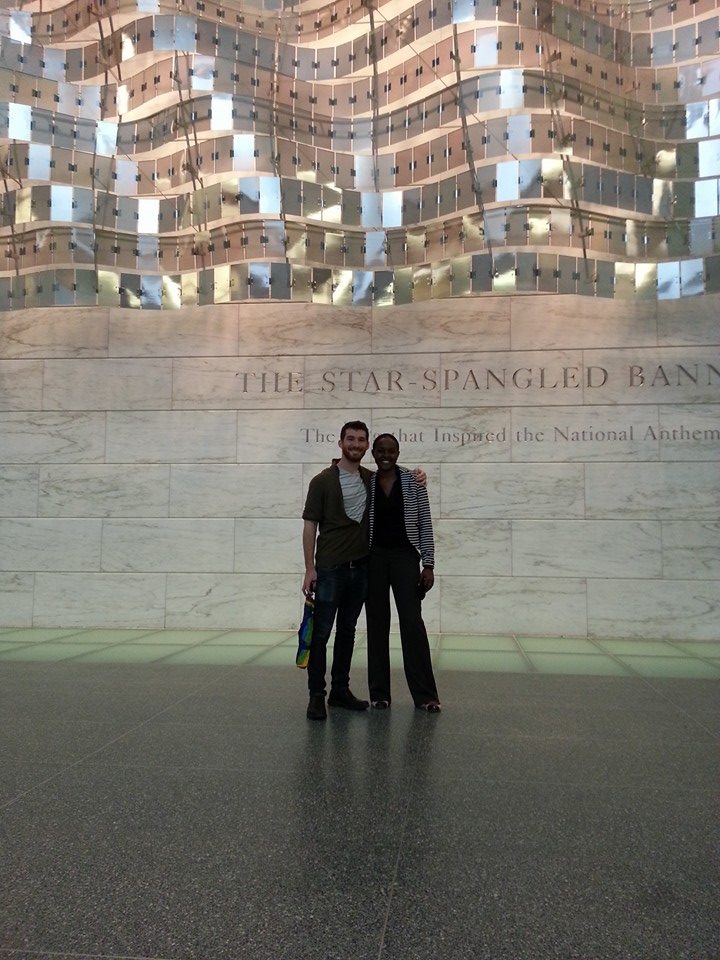First-Time Visitor to the U.S.: An African Writer Reflects on Culture and Food
Categorized as: Stories on June 14, 2014.

26-year-old fiction writer and healthcare educator Caroline visits the U.S. for the first time on a fundraising tour with our partner, Gardens for Health International. Feeling at once warmly welcomed and culture shocked, she looks for common ground between our two countries. Caroline (L) with an American host and her colleague, Naomi (R).
Editor’s note: Gardens for Health International (GHI) is a Rwandan-based nonprofit that employs agricultural solutions to eradicate childhood malnutrition through food aid and education. Since its founding in 2007, GHI has worked with over 1,900 families to ensure that 7,600 children have access to healthy, nourishing food. This fall, GHI will rapidly expand their reach in Eastern Africa by partnering with 10 government health clinics in addition to the current 8 sites. Skees Family Foundation is thrilled to support GHI with a storytelling grant to fund the production of a video that showcases their model and work on the ground.
By Caroline Numuhire for Gardens for Health International
On our recent trip to the U.S., we flew from my home country as a team of four Rwanda-based Gardens for Health International staff on a fundraising campaign. Many Africans see traveling to the U.S. as going to some sort of paradise, but I was preoccupied by one simple thought: I was going to represent a whole organization of sixty employees, a country, and a continent!
Once the presentations started, I was so excited to share GHI’s story and my story of self with our audience, but also another story about my country, Rwanda, which most people see from just one angle: what Chimamanda Ngozi Adichie might call the “danger of a single story”. Our single Rwandan story is the tragedy of 1994. So it was an honor and a great opportunity to meet and talk with great people who were eager to discover a new Rwanda.

My Rwanda has a different story: where a nation is struggling to achieve sustainable development, where people have normal lives, with the good and bad, and where a team of amazing and talented Rwandese work hand in hand with young Americans at the service of the community, to overcome the problem of childhood malnutrition.
Talking to an American audience was a rich experience, not because of the delicious snacks served on different tables, but because of the way they were attentive to us and our stories. They did not care whether my English was perfect or not; they cared about and were amazed by the work that we do. They were receptive. And this has so much value for the GHI family, from top managers and field educators to farm staff and drivers, because when someone recognizes your efforts, it motivates you to go further.
It was important for us as an organization to share our work and get more financial support, but most of all to raise awareness about the severity of the problem of malnutrition. When we talk about the 44 percent of children under five who suffer from malnutrition, we are not only talking about the specific case of Rwanda, but about creating a global alertness of a universal problem.
When my colleague Naomi talks about eating a balanced meal, she is addressing Rwandan, American, and global audiences. Sharing this story was essential for us, because each word and each experience we shared was so touching to the audience, and each dollar contributed means more children that we can reach.
Now, for my fellow Africans: if you fly for the first time to the U.S., don’t worry if you say your last prayers when your airplane enters a turbulence zone, if you eat sushi and do not like it, if you fall on an escalator, or if your shoulders are hit by the opening doors of train because you weren’t quick enough to get out. Never mind if you are surprised that San Francisco has more dogs than children, and if there are multiple Starbucks and Chipotle in every city that you visit. Don’t be surprised when you learn that in the U.S. capital there is another “Capitol”, that the White House is smaller than most important buildings in D.C., and that there are poor and homeless people begging on the side of the road.
Finally: be amazed by the diversity in human beings. Take a short time to appreciate the beauty of a botanical garden, the speechless view from the Golden Gate Bridge, the delicious taste of a cup of Chai tea, the innocence in the looks and smiles of children everywhere, and the fresh smell of a tulip.
And a last piece of practical advice for my fellow Africans: never imitate American people by eating snacks all the time. Just eat healthy, wholesome food, like the kind GHI serves at our community lunch every day! Most of all, never forget that malnutrition is my problem, and your problem, and that we have a long way to go to overcome it. But hand in hand, we can do anything.
(To read more from the Gardens for Health International staff here.)
Photographs courtesy of Gardens for Health International.
LEARN more about Gardens for Health International, click here.
SHARE this story on your Twitter feed or Facebook; see menu at top and bottom of page.
DONATE directly to Gardens for Health International’s work to end child malnutrition through agricultural and educational empowerment, here.
SUBSCRIBE! Like what you see? Click here to subscribe to Seeds of Hope!
